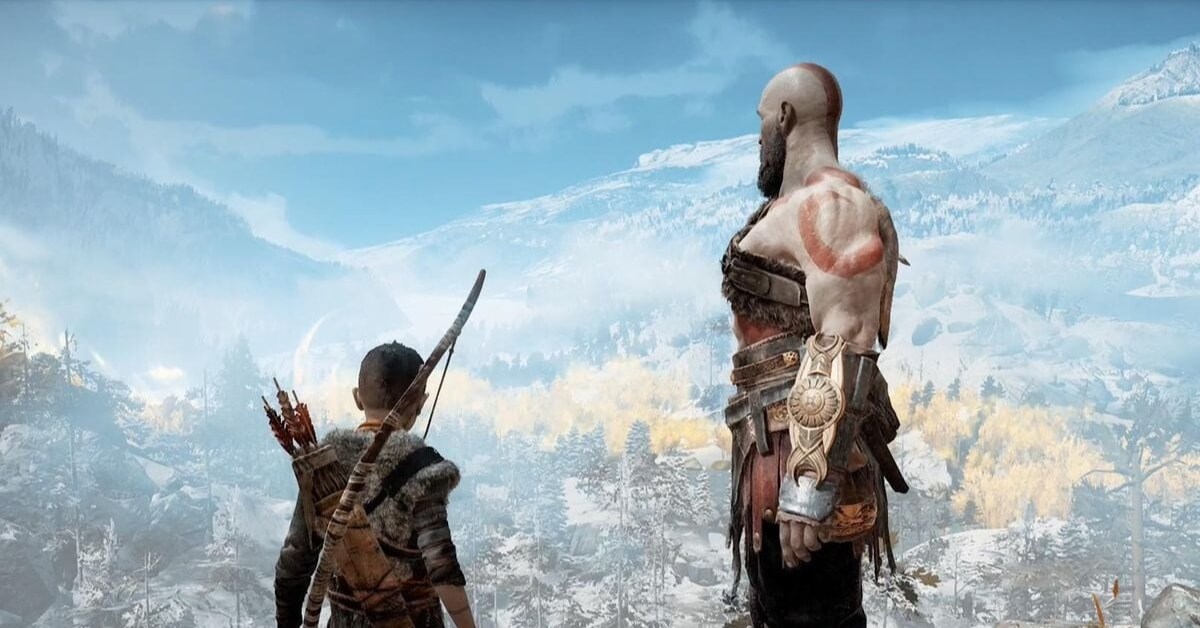Once feared by the Greek gods, Kratos now lives as a settled, older man in the Nordic woods with his son and late wife, Faye.
His character has seen significant development since the soft reboot, raising intriguing questions for dedicated fans, such as how he arrived in Midgard in the 2018 installment of God of War.
Kratos got to Midgard by sailing there after the destruction and flooding of Greece once he killed off the Greek Pantheon. Also, he could transition from Greek to Norse mythology because the two mythologies coexist on the same plane and are only separated by geography which was confirmed by Game Director Cory Barlog in 2019.
How Did Kratos go to Midgard in God of War 2018?
The conclusion of the third installment in the God of War series marked a pivotal moment in the journey of Kratos, the Spartan warrior once feared by the Greek pantheon.
In a final act of redemption, Kratos sacrificed himself before the goddess Athena, choosing to end his vengeful ways. The immense power that resided within him was unleashed into the world rather than bestowed upon the goddess.
As the screen faded to black, leaving Kratos seemingly on the brink of death with a grievous wound in his stomach, the fate of the character hung in the balance.
However, a mysterious and intriguing narrative twist unfolded when the scene returned. A trail of blood led to the cliff’s edge, but Kratos was nowhere to be found.
The cliff overlooked a landscape dramatically altered by a great deluge, with the Greek world submerged beneath turbulent waters and engulfed by massive tornadoes.
The fate of Kratos remained shrouded in mystery, leaving players with questions that only the storytellers could answer.
The prevailing theory within the community suggests that Kratos was brought to Midgard by his second wife, Faye.
This theory is supported by substantial in-game evidence. Kratos himself alluded to his past when he told his son, Atreus:
“I am a god, boy, from another land, far from here. When I came to these shores, I chose to live as a man.”
This statement clearly indicates that Kratos sailed to Midgard after the destruction and flooding of Greece following his relentless pursuit of vengeance against the Greek pantheons.
One might wonder how Kratos could seamlessly transition from Greek to Norse mythology, as the two mythologies appear to exist in distinct realities or dimensions.
However, within the God of War universe, all mythologies coexist on the same plane.
The various pantheons possess dominion over specific geographic territories and their respective cultures. By embarking on his voyage to Midgard, Kratos effectively crossed into the realm of Norse mythology.
A compelling piece of evidence supporting the coexistence of mythologies in the God of War universe is the character Mimir, who possesses knowledge of Kratos’ past and identifies him as the “Ghost of Sparta” upon learning of his divine lineage as the son of Zeus.
Also, Game Director Cory Barlog shed light on the intricate workings of mythologies within the God of War universe during the 2019 Game Developer Conference. He revealed:
“At any given time, all of the mythologies exist altogether in a world. They are simply separated by geography.”
In this intriguing narrative landscape, Kratos’ odyssey is proof of the limitless possibilities that emerge when the boundaries between mythologies blur, creating a narrative tapestry that continues to captivate fans.
What do you think of this theory? Do you believe this holds water? Or do you have your theories about this?
Let us know your thoughts in the comments below.

